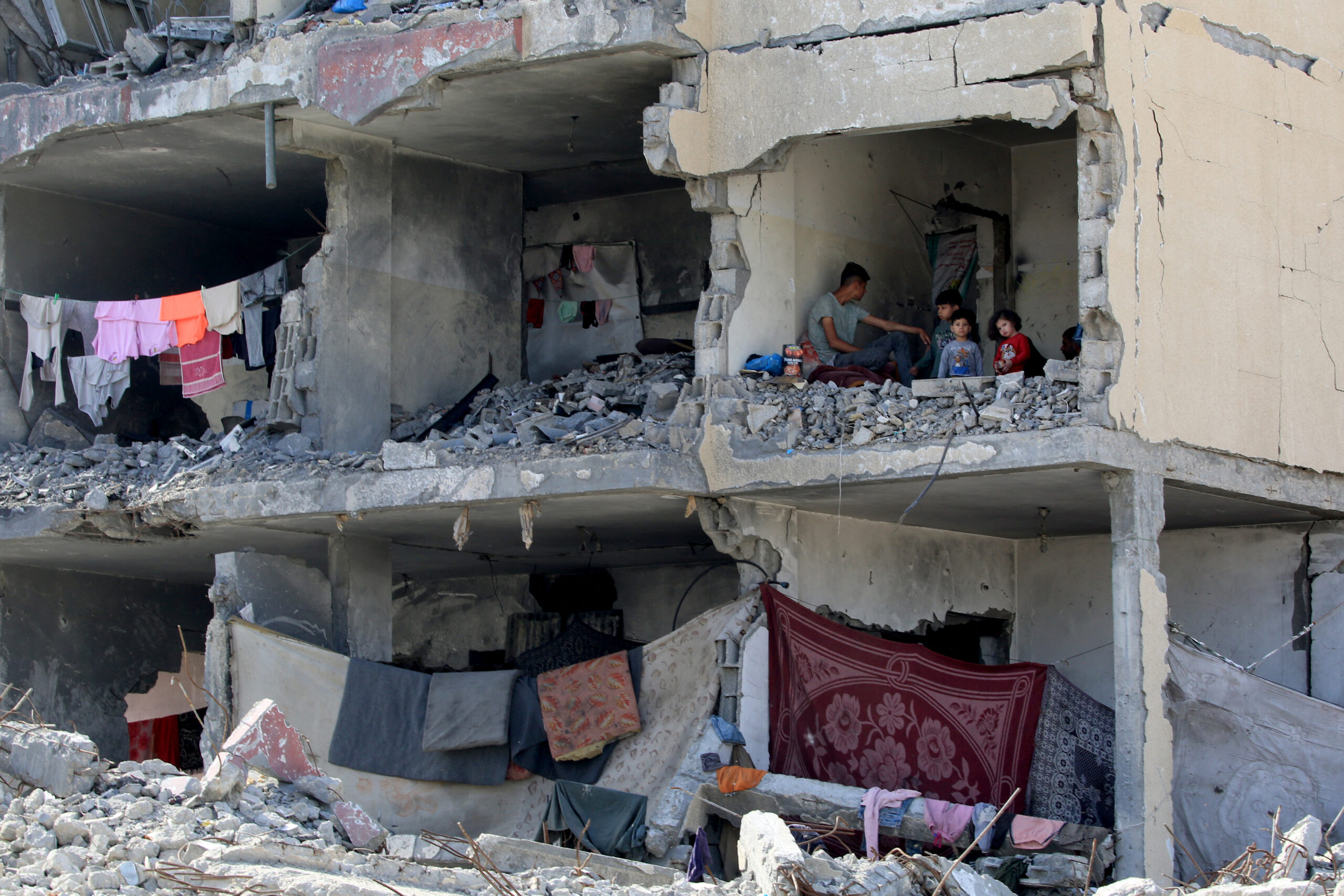
A Palestinian man and his children sit in a destroyed room following the targeting or a residential building by an Israeli airstrike in Rafah in the southern Gaza Strip on May 22, 2024, amid the ongoing conflict between Israel and the Palestinian Hamas group. – Heavy fighting has raged around Gaza’s far southern city near the border with Egypt, the last part of Gaza to face a ground invasion, where an AFP team reported more air and artillery strikes early in the morning on May 22. (Photo by Eyad BABA / AFP)
WASHINGTON — The White House said Wednesday that Israel has so far been taking more “targeted” action in Rafah but renewed its warning to avoid “a lot of death and destruction” in the southern Gaza city.
President Joe Biden earlier this month warned Israel he would stop supplying some arms — and his administration halted one shipment including massive bombs — after he voiced opposition to a major assault on Rafah, where more than one million displaced Palestinians had found shelter.
Jake Sullivan, Biden’s national security advisor, said he was told during a visit this week to Israel of “refinements” in its plans for Rafah that would allow it “to achieve its military objectives while taking account of civilian harm.”
READ: Israel hits Rafah despite US warning on arms transfers
“What we have seen so far in terms of Israel’s military operations in that area has been more targeted and limited, has not involved major military operations into the heart of dense urban areas,” Sullivan told reporters.
But he stopped short of saying that Israel had addressed US concerns, adding that Washington was closely watching ongoing Israeli actions.
“There’s no mathematical formula. What we’re going to be looking at is whether there is a lot of death and destruction from this operation, or if it is more precise and proportional,” he said.
READ: Blinken: Israel offensive on Rafah would not eliminate Hamas
“We will see what will unfold.”
During a congressional hearing featuring testimony from Secretary of State Antony Blinken, Representative Sara Jacobs praised fellow Democrat Biden for his “red line” on Rafah but said the public might not understand where the line was.
Blinken replied that Israel was targeting Hamas tunnels into Gaza.
The operation is “principally designed to take control of the border area, or at least parts of the border area between Egypt and Gaza, in order that smuggling tunnels that are there are taken out of action,” he said.
But Blinken noted that Israel’s takeover of the Rafah border crossing has led to a halt in aid, with Egypt concerned about security of drivers and aid workers.
Blinken said the United States was “working intensely with Israel and Egypt” to reopen the border crossing.